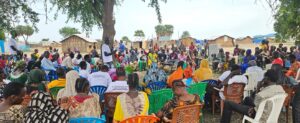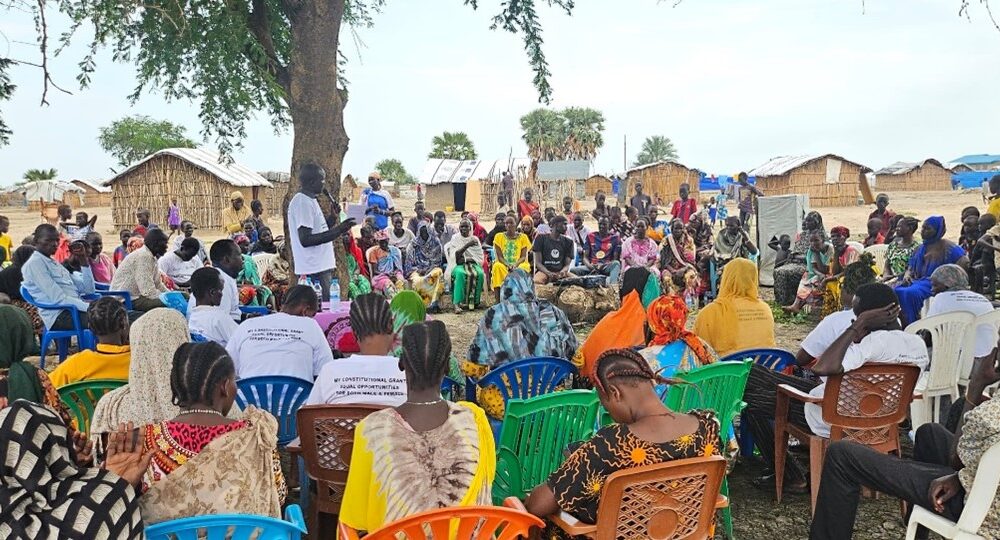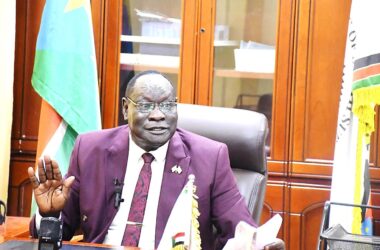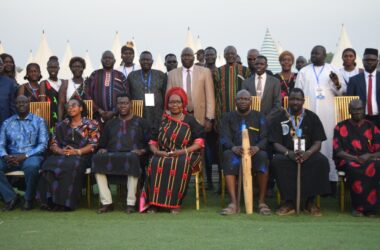
By Lodu William Odiya
A transformative civic education campaign has broken the silence on gender discrimination and gender misrepresentation of women in the decision-making processes in the heart of Hai Salaam, Rubkona County in Unity State.
Organized by Active Citizen South Sudan (ACSS) with the support from Norwegian People`s Aid (NPA), the drive aimed to foster awareness, ignite dialogue, and inspire action within communities that continue to face the harsh realities of gender inequality and violence.
The series of sessions also tackled a range of issues including understanding the forms and impact of under representation of women population, neglect of gender roles within families , communities and strategies for community-led prevention and response.
Speaking on behalf of the organization, Lat Tungwar Kueiguong, Project lead representative in the field, revealed that the initiative was the beginning of a larger vision for community transformation
“Gender equality is not just a women’s issue it’s a community issue. When we empower both women and men equally, we unlock the full potential of our society.”
As a result of the campaign, he noted that it was high time for communities to be capacitated to address gender-based violence and discrimination at the grassroots level
“What we saw is courage. Communities are ready to confront hard truths. We will continue to support local voices and build platforms where no survivor feels alone,” he concluded.
Over 1,000 participants were reached during engagement. These include diverse and spirited youth, local leaders, women, elders, and community leaders who engaged openly in discussions around the deep-rooted cultural and social norms fueling discrimination and abuse.
Several local leaders underscored the urgent need for sustained education and collaboration to confront gender-based injustices.
Malek Kiet Malith, Acting Executive Director of Rubkona County, described the campaign as a pivotal step in re-shaping societal norms:
“This campaign is not just about learning, it is about unlearning the harmful ideas we have accepted for too long. Gender justice begins when every household is part of the conversation,” he urged
Beyond silence and fear, he said, it’s time for communities to speak openly, educate the young, and support creative mindset that embraced equal perspective and treat each other gender with dignity.
“As leaders, we are responsible for creating safe spaces where both women and men can thrive equally,”
Nyabor Nyuon Yoach, Chairperson of the Rubkona County Women’s Association, encouraged women to rise against silence and fear in the face of inequalities.
“For years, many of us have suffered in silence. Today, we reclaim our voices. And with our voices, we must demand protection, equity, and respect,”
The campaign was implemented through funding from the Norwegian People’s Aid (NPA)
For his part, Sudan Lul Wuthien, Acting Director of the Relief and Rehabilitation Commission (RRC) in area, echoed the call for inclusive civic participation.
“We cannot afford to leave anyone behind not the women, not the youth. A community that educates its people on human dignity builds the strongest foundation for peace.”
The campaign’s interactive format allowed for open discussions and deep reflection, where Women and youth attendees were particularly vocal, applauding the initiative and calling for more sessions that penetrate deeper into rural villages and hard-to-reach areas of the county.
Mama Roda, a participant shared, “I used to think these conversations were only for big cities. But now, I understand that we need them more here in Rubkona at home, in schools, and even in the cattle camps.”
Community members called for the establishment of more local reporting mechanisms and safe spaces for survivors. There were also suggestions for integrating gender education into schools and church programs.
The campaign ended with an open forum, where participants committed to forming peer groups and engaging local leaders in future education drives. What began as a civic session evolved into a collective awakening where silence gave way to strength, and knowledge became a tool of liberation.
As Rubkona takes its next steps, the voices heard serve as a reminder: when a community is informed on right things, it shoulders responsibility.



